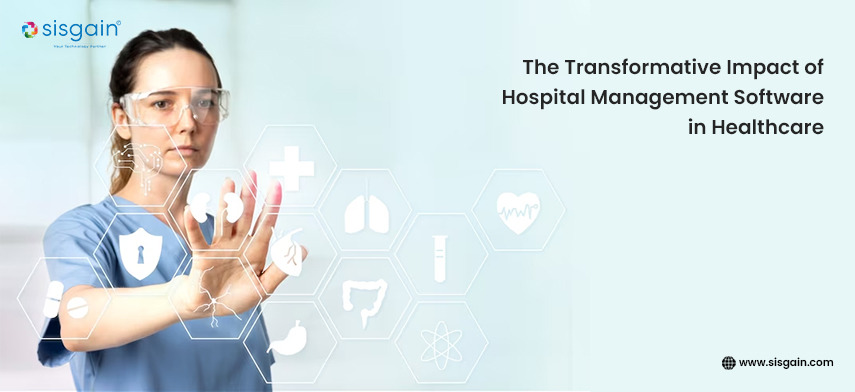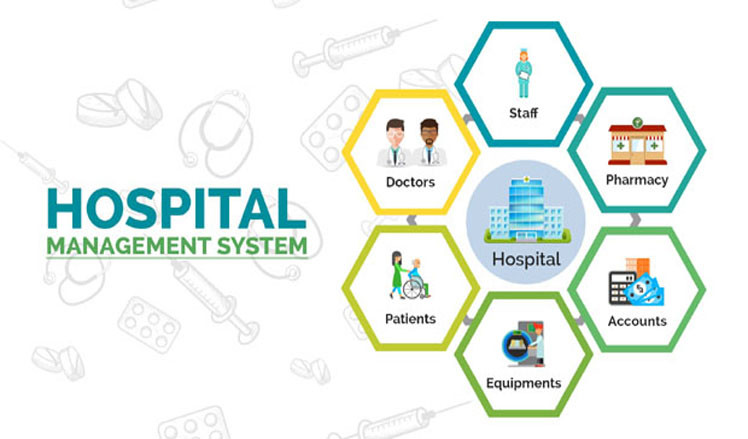Sales Team
Project quotes, partnerships, implementation

We no longer just have smartphones. With the rapid technological developments, today we have smart hospitals. Yes, you read it right, smart hospitals. Those days are gone when the public must wait in long lines for appointments, medicines, or clinical tests. The scenario has changed. What do we do when we have to consult a doctor? We simply book an online appointment first. If the doctor suggests an in-person visit, we visit the hospital physically.
The way hospitals operate has also undergone a massive change. We no longer see nurses or doctors scribbling notes on paper, large mounds of paper files, or the receptionist filling out manual forms. Almost everything is digitalized. Today, entire hospitals are managed through hospital management systems or hospital information systems.
What are these exactly? And how are they transforming healthcare? We will answer these questions in this blog. So buckle up to enhance your knowledge about hospital management software.
Hospital management software (HMS) is a comprehensive system designed to streamline and automate various administrative and operational tasks within a healthcare facility. It helps hospitals improve efficiency, reduce costs, and provide better care to patients.
A hospital management system software automates tasks like patient registration, appointment scheduling, billing, pharmacy, and inventory management.

HMS helps manage patient demographics, appointments, scheduling, admissions, discharges, and billing. It also provides a central repository for electronic medical records (EMRs), which can be accessed by authorized personnel throughout the hospital.
A HIS (hospital information system) helps track and manage hospital finances, including insurance billing, claims processing, and accounts receivable. It can also generate reports that help hospital administrators track their financial performance and make informed decisions.
Hospital management software helps track and manage medical supplies, pharmaceuticals, and equipment. It can generate alerts when inventory levels are low and help hospitals avoid stockouts.
Hospital management system software helps manage staff scheduling, payroll, and performance reviews. It can also provide training and development opportunities for staff.
HMS provides a variety of reports and analytics that can help hospital administrators track their performance and identify areas for improvement.

A hospital information management system can help hospitals provide better care to patients by giving them access to their medical records, improving communication between providers, and reducing medical errors.
For example, HMS can provide patients with online access to their medical records, which can allow them to track their progress and communicate with their providers more easily.
A hospital has to deal with a lot of patient data that must be stored properly for easy access. Paper records are prone to damage and can be lost. This could result in fatal results. A HIS (hospital information system) stores data digitally that can be accessed easily whenever required.
A hospital management system facilitates easy communication between the different departments. Hospital staff can easily share files and patient records that are crucial for precise treatment. Quick and fast communication is essential where every second matters, and any delay can cost a patient his/her life.
A hospital also has inventory in the form of medical tools and equipment, accessories, stationery, etc. The inventory management module of a hospital information management system can track inventory smartly without the need for manual intervention.
A HIS (hospital information system) can also treat patients remotely. The integration of wearable medical devices with an HIS can help doctors collect patient vitals and analyse them. This is beneficial for those patients who cannot travel back and forth from the hospital or are located in far-off places.
Hospital management system software has made it easy to handle and manage finances. A hospital receives multiple payments in a day, and handling them manually can be a headache. Therefore, an HMS can offer the convenience of handling finances and bills.
HMS can help hospitals save money by reducing administrative costs, improving inventory management, and preventing fraud. For example, HMS can automate tasks such as scheduling appointments, generating bills, and sending reminders. This allows staff to focus on other tasks, such as patient care.
HMS can help hospitals comply with a variety of healthcare regulations. For example, HMS can track and store patient data in a secure and compliant manner.
SISGAIN is a leading hospital management software development company. We have extensive experience in developing custom HISs for healthcare organisations around the world. Connect with us today if you are looking for custom and robust hospital management software for your clinic or hospital. Book a consultation session to discuss your requirements and how much the development will cost.
There is not a slight doubt that hospital management software has brought much-needed transformations to the healthcare sector. Hospitals can now manage their patients better, provide better services, store patient data, quickly exchange patient data, reduce administrative costs, and manage inventory and finances. If you own a clinic or run a hospital, we suggest that you get a hospital information system and boost your efficiency.
Project quotes, partnerships, implementation
Open roles, referrals, campus hiring